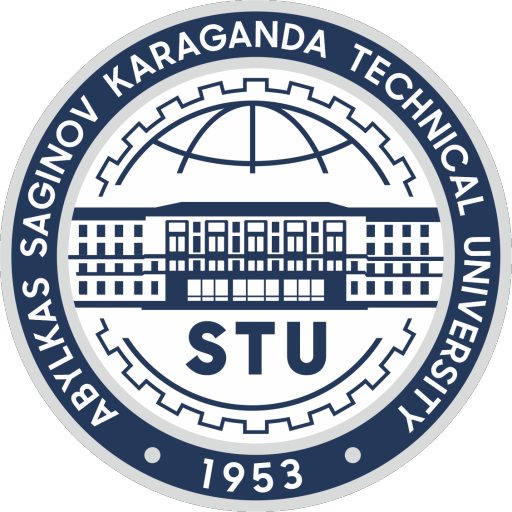Department of “Information Technology and Security”
Documents:
- Schedule of consultations of graduation theses (projects)
- Schedule consultations on TDMA
- Academic mobility of students and undergraduates
- Academic mobility of students and undergraduates (internal)
- Information on internal academic mobility of students
- Academic mobility of students and undergraduates (external)
- INFORMATION ABOUT PRACTICES
- List of employers
- Development plan of educational program
- Information about practice bases
Academic mobility of students and undergraduates
In order to implement internal academic mobility, NJSC “Karaganda Technical University named after Abylkas Saginov” cooperates with a number of universities in Kazakhstan, including NJSC “Karaganda University named after academician E.A. Buketov
Material and information resources on department ITS
On department ITS there are 7 auditoryes equipped with modern means of training.
From them 2 lecture auditoryes №№ 425,430 which are equipped:
auditory № 425 – computer PENTIUM III and projective TV TOSHIBA
auditory № 430 – computer PENTIUM III, projector Panasonic and interactive board Polyvision.
For carrying out laboratory and a practical training on chair there are 4 computer audiences №№ 422,423,424а, 426.
auditory № 422 – 10 computers of a class «Pentium» 4;
auditory № 423 – 13 computers of a class «Pentium» 4, laser printer “Hewlett-Packard”;
auditory № 424а – 10 computers of a class «Pentium» 3;
auditory № 426 – 12 computers of a class «Pentium» 4, plotter “Hewlett-Packard”, the laser printer, the scanner. The given audience is used for carrying out of employment in speciality groups «information security System».
For preparation professor and teaching structure to employment and for carrying out of research works the Automated Workplace Teachers (automated workplace), Undergraduates and Post-graduate students is provided.
The automated workplace is equipped by 6 computers of a class «Pentium» 4, laser printer “CANON”, scanner “GENIUS”.
At carrying out of employment on a cycle of disciplines of “a designing and designing Basis» the audience №425 which is equipped by the necessary equipment is used.
Joint Educational R&D Laboratory of KarTU – EPAM Systems
On April 5, 2011, the ceremonial opening of the R&D laboratory took place at the Karaganda State Technical University at the Department of Computer–aided Design Systems. This is the first and only project of this level in Kazakhstan, which is the result of a joint initiative of the Zerde infocommunication holding of EPAM Systems and the management of KarSTU.
The purpose of opening the laboratory is to improve the quality of education and the formation of human resources that meet modern international standards for the development of the ICT sector of the Republic of Kazakhstan. The implementation of this project, in close partnership between Zerde Holding and EPAM Systems, allows reducing the share of public financing in the implementation of the sectoral ICT Development Program in Kazakhstan for 2010-2014, as well as expanding the application of international practice in the creation of research laboratories in the field of information and communication technologies with the involvement of private capital.
As part of this program, the company actively cooperates with leading universities in the CIS countries, organizes joint training centers and develops unique teaching methods for training qualified IT specialists.
In the new laboratory, students can get acquainted with modern software development processes, consolidate the theoretical knowledge gained at the university, and acquire practical software development skills using the scientific base of the university and the best practices of the developer company. For productive training of students, EPAM Systems has fully equipped the laboratory with modern high-performance equipment.
During the 2022-2023 academic year, 7 remote trainings were conducted with leading associate professors of the Belarusian State University in the following areas:
- Java programming
- Software Testing
- Programming in C#. Web development
The trainings explore the basic principles underlying object-oriented programming. The basics and applications of Windows Forms are considered. Students practice in:
Creating resource files to describe dialog boxes, menus, toolbars, icons, etc. — controls of the program.
Development of a help system for working with the program.
Compiling the source code of programs.
The layout of the program of their components.
Debugging and modification of programs.
Over the past period, 85 students have completed trainings and received certificates. Many of whom, upon graduation, were employed by a subsidiary of EPAM Systems – PLUSMICRO.
On the basis of the R&D laboratory, contractual topics for the development and maintenance of Software for private enterprises and firms are being implemented (in the amount of 2 million tenge).
